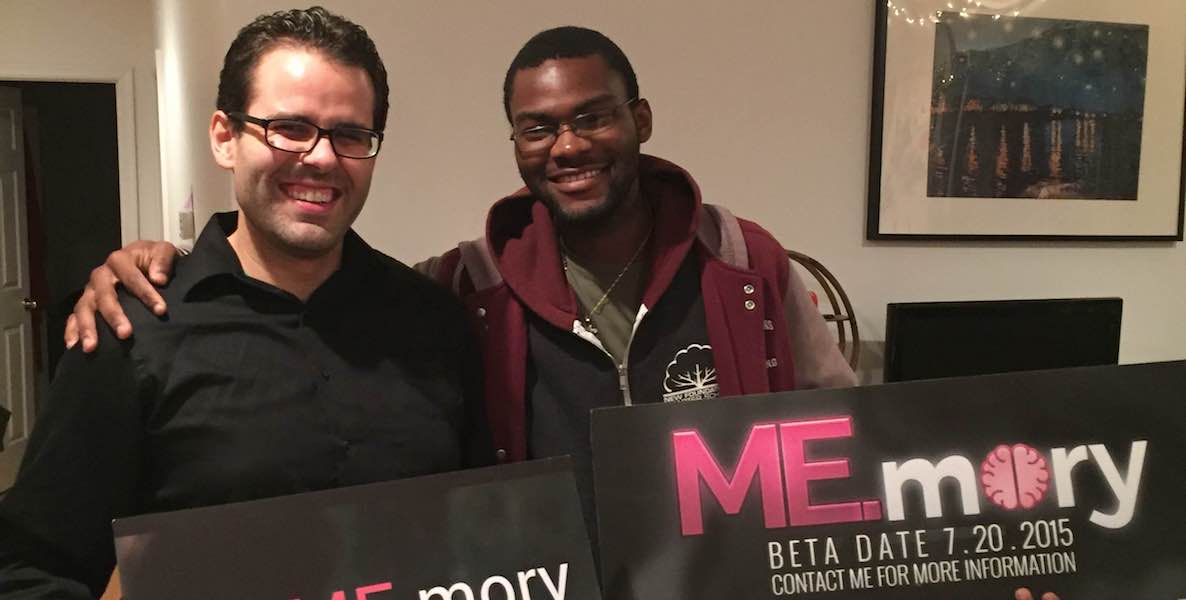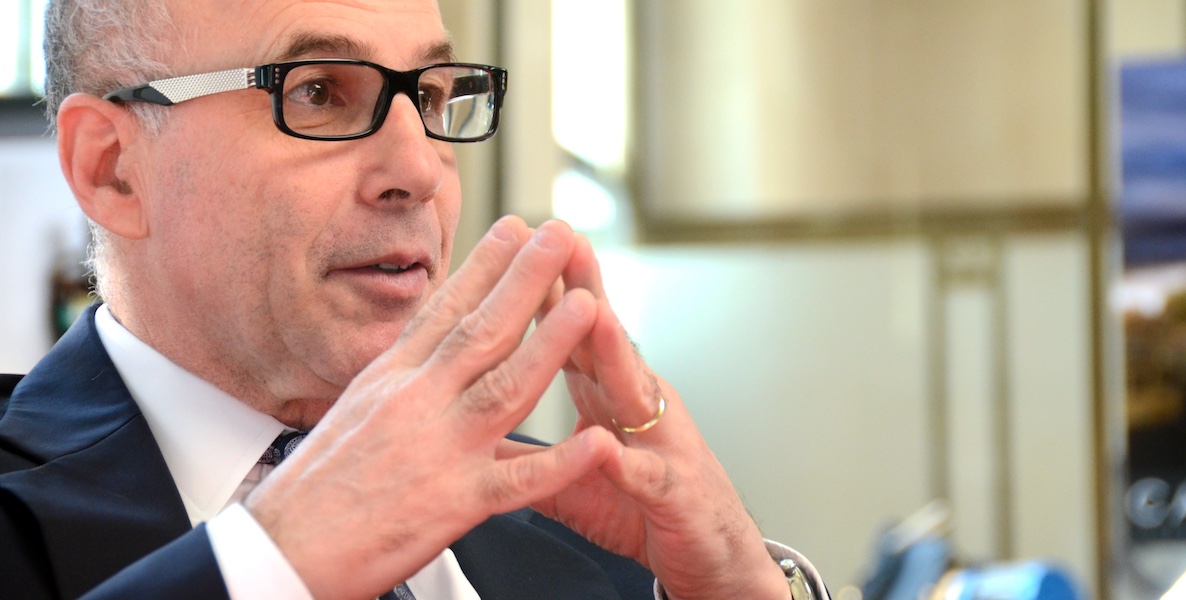When his book, We Can Fix Healthcare: The Future is NOW, came out last year, Dr. Stephen Klasko and his co-author, Dr. Gregory Shea, received some puzzled looks. “Didn’t we already do this?” they seemed to say. Not according to Klasko, the disruptive, charismatic President and CEO of Thomas Jefferson University and Jefferson Health, who, since taking over in 2013, has created a compelling brand for himself. Outspoken and reform-minded, Klasko, 63, is reimagining what health care is and ought to be, and he does it in a smart and breezy way, as in this 2014 TEDx Talk:
Klasko reports that last fall’s election results sparked renewed interest in his book. After all, it was a fait accompli that President Trump and the Republicans would repeal the Affordable Care Act; but what would they replace it with? When I caught up with Klasko earlier this week, that’s where we began. The President and Republican congressional leaders were on their way to Philadelphia, in part to figure out their plan.
Larry Platt: Let’s role play. You get a call this afternoon and it’s the President. He says, “Steve, we’ve got a problem. I’ve got to pull an all-nighter to come up with a plan to replace Obamacare. What should I do?” What do you tell him?
Stephen Klasko: First, I’d say President Trump, in medicine we don’t treat the disease before we diagnose it. All rhetoric aside, the ACA did what it was hired to do, which was to provide more access to a broken, inequitable, and occasionally unsafe system. We hoped it would transform it, but there was no reason to think it would, because we didn’t do the stuff we needed to do to transform the system.
LP: You mean all we did was focus on access? On covering the uninsured?
SK: You’ve got what’s been called the iron triangle of healthcare: Access, cost and quality. We needed to start changing the way we think about that whole system. After the passage of ACA, we declared victory but never really dealt with Pharma prices, as you’ve said, Mr. President. We didn’t deal with end of life issues, even though something like 20 to 25 percent of all healthcare expenses occur in the last 6 weeks of life—because someone else is paying the money. And, this is right up your alley, Mr. President, we haven’t done anything to help the healthcare industry join the consumer revolution.
I’ll give you an example. We want people to get healthy, but we count on them being sick and using up a lot of hospital beds. At Jefferson, we’ve stopped adding beds and emphasize telehealth—so you can be seen by a doctor on your computer screen. But we get punished for that, because I still make too much money off my Emergency Room.
President Trump, you shouldn’t give one more cent to one more Philadelphia hospital alone. Philadelphia has the highest rate of life expectancy differential between zip codes of any city in the country. Yet we’ve got these great institutions, like Penn, Jefferson, Drexel and Temple. The fact that we declare victory in Philadelphia is an embarrassment. So government shouldn’t give individual hospitals anything until we all come together to solve the problem.
And the final thing I’ll say, President Trump, is what I’ve already told Governor Tom Wolf. You shouldn’t give one more cent to one more Philadelphia hospital alone. Because we’ve failed. Philadelphia has the highest rate of life expectancy differential between zip codes of any city in the country. Yet we’ve got these great institutions, like Penn, Jefferson, Drexel and Temple. If you’re a kid born today in Strawberry Mansion, your life expectancy is less than in Iraq or Syria. The fact that we declare victory in Philadelphia is an embarrassment. So government shouldn’t give individual hospitals anything until we all come together to solve the problem.
LP: I just got a real sensation of deja vu. A lot of us thought we supported healthcare reform eight years ago. Why didn’t that work?
SK: One of the great disappointments back then is that President Obama didn’t follow through on his plan to hold hearings on C-Span. Remember that? I like to say he got “Washingtonized.” Someone encouraged him not to do open hearings and, instead, there were a series of compromises. Don’t take on drug prices—Big Pharma will run those Harry & Sally ads, like they did against the Clintons in the mid 90s. Don’t touch end of life issues—Sarah Palin will talk about death panels. Don’t mess with physician salaries. Don’t worry, insurers—we’ll give you subsidies to make the economics work for you. The ACA broadened access to a broken system, but it was not a revolution in health care.
LP: So we passed reform that wasn’t transformative. Whose fault was that?

Get More From Every Story
We include boxes in nearly every story to help you take action. Click the boxes below to see how you can make Philly better.
SK: Honestly, the biggest culprit has been patients. They’ll tolerate things in health care they’d never tolerate in anything else as consumers. That may be changing, because in my experience, Millennials won’t stand for it. If a doctor or hospital treats you like crap in Philadelphia, there are thousands of docs—find a doctor or a system that treats you well. You know, when our family doctor refers us to a specialist, you and I likely just go to him or her. Millennials say to their family doctor, “Yeah, right, you probably play golf with that guy. Give me three other names, too.” And then then they look each up on Healthgrades.
The other problem is OPM—Other People’s Money. We need to get OPM out of the system. In Boston, Massachusetts General Hospital is five times as expensive as Lahey Clinic. Let’s assume the same outcomes, for the sake of argument, and that we’re not talking bone marrow transplant or anything like that. For the 42-year-old who needs a knee replacement, why should someone else pay for that at five times as much? IBC, United, Aetna—they’ve all given patients an unlimited credit card.
LP: What you’re really talking about is holding up a very entrenched system to critical inspection. Isn’t culture industry-wide a big impediment to the kind of transformation you’re championing?
SK: You hit the nail on the head. We need to care more. Let me give you an example. We have Virtual Rounds at Jefferson. Your mom is in the hospital and you’re in California and you want to find out how she’s doing. Well, the doctor comes by to see her at 5:30 in the morning. You call and speak to your mom, but she doesn’t know or remember what he said. You can call the nurse, but she’ll tell you the doctor is busy all day. So what’s Virtual Rounds? It means that, when mom’s admitted to the hospital, her son gets signed up for Virtual Rounds and he gets a text or email every day so he can stay up to date on mom’s care.
We got a lot of press for Virtual Rounds. But I was also depressed by that, because we could have done it 3 years ago with FaceTime, 5 years ago with Skype, and 15 years ago with the telephone. But we didn’t care.
Or take food—why is the food in hospitals so mediocre? As an industry, we didn’t care. It was pure hubris to think we didn’t have to deal with the same customer service issues everybody else has to deal with. And patients have tolerated it, because OPM dominates the system. Imagine if you were paying the $5,000 a night for that hospital room yourself—maybe then eating mediocre meatloaf would bother you.
LP: I have to tell you, I very rarely hear anyone in a position of leadership in the medical field being so self-critical and questioning of standard operating procedure. What’s different about you?
The biggest culprit has been patients. They’ll tolerate things in health care they’d never tolerate in anything else as consumers.
SK: The average person in my job is 65 to 70 years old, has been an academic physician, grew up in a hierarchy where the doctor was always king, and is planning to retire in a few years and play golf every day. Think that person wants to disrupt things?
When I first came here, I realized every mission statement of every academic healthcare center in Philadelphia was virtually the same. No one had the words “reimagine” or “value” in their mission.
If I ruled the world, we’d have different, more entrepreneurial people running healthcare. I spent time at Apple in 2000, when it was moving from a computer company to a digital company. The world was changing. Gateway and Dell didn’t get that. But Apple did.
LP: Your book is actually optimistic about the prospects for transforming healthcare, provided we heed Albert Einstein, who you quote: “We can’t solve problems by using the same kind of thinking we used when we created them.” I’m wondering, now that we have a president and a congress scrambling, seemingly at the eleventh hour, to come up with yet another healthcare plan, if you remain optimistic?
SK: Yes! I love this, because I always thought what was needed was a slap in the face to the system. My non-political complaint of ACA was it didn’t do the tough stuff. It just kept putting subsidies into Medicaid expansion. Things are eminently solvable if you’re willing to break some eggs.
LP: So you’re not one of those healthcare executives looking to retire to Florida anytime soon?
SK: And be another small Jewish guy in plaid shorts on the golf course? No thanks.







